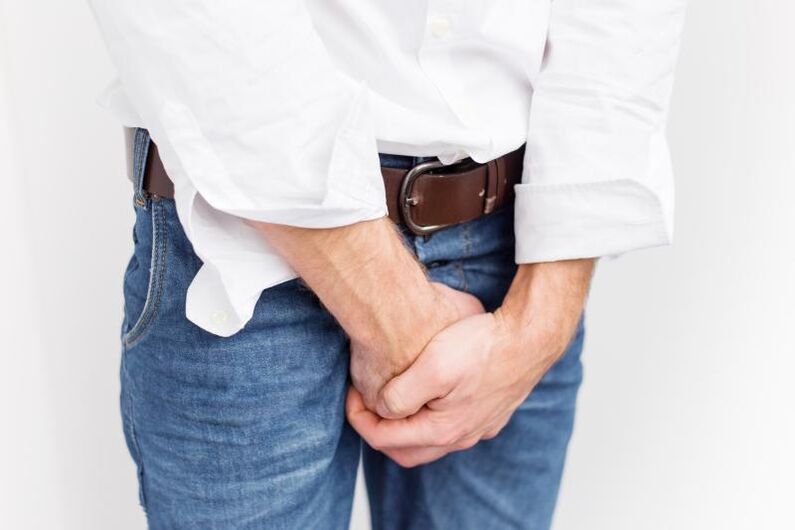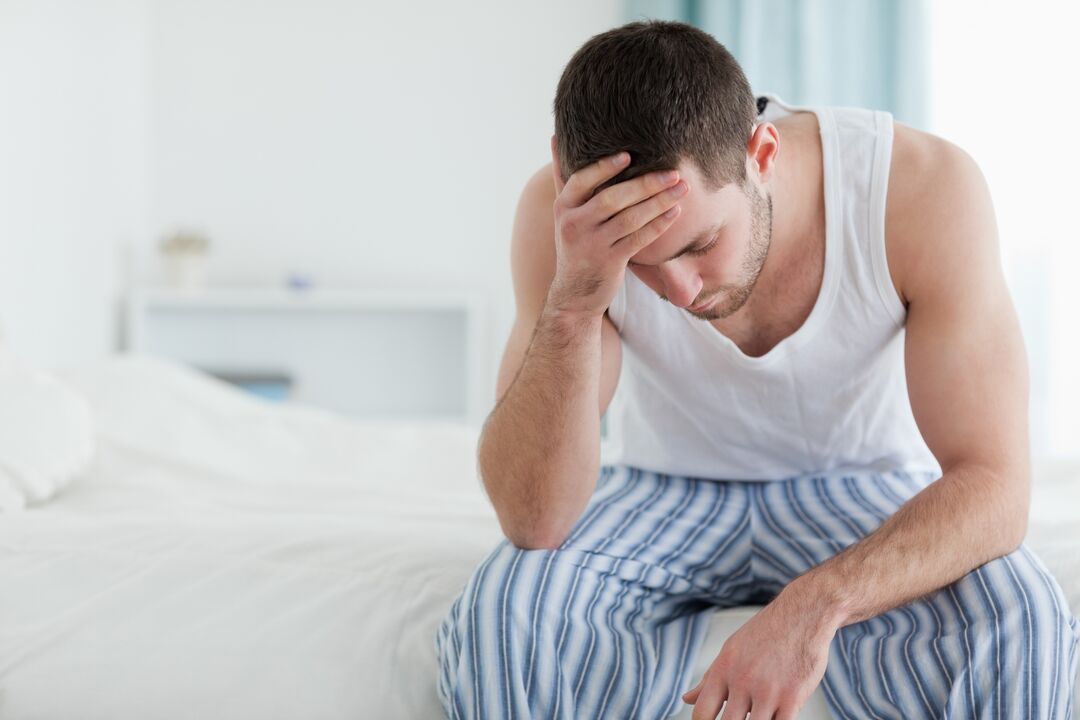
Prostatitis is a disease that can occur only in the male genitourinary system. Representatives of the stronger half rarely rush to see a doctor and often skip a favorable stage for treatment, leaving the solution to health problems at a convenient time, which usually comes too late. It is very important to listen to your body, in time to identify problems that threaten to be imprisoned for a long time in a hospital bed.
Taking care of the health of the prostate becomes especially important in adulthood. But the disease is actively rejuvenating. If before it was diagnosed mainly in men over 40 years of age, now the symptoms of prostatitis began to be detected at 20-25 years. Almost one in two men suffers.
The role of the prostate in the body of a man
This organ is often called the "second heart" because of the many important functions that the gland performs. In it a secret is formed, which dilutes the composition of the sperm, the gland is part of the sphincter that regulates the urinary process, produces and converts male hormones, and also contributes to the sensation of orgasm.
Signs of prostatitis in men and its symptoms.
Prostatitis is an inflammation accompanied by swelling of the tissues of the prostate gland (prostate), it will inevitably manifest itself, even if the pathology itself is in the adjacent organs, the vas deferens, the urethra and the bladder. The main highways of the circulatory and lymphatic systems pass through the groin area, this aggravates the congestion. The many nerve fibers that run in this area of the body contribute to painful seizures.
Symptoms of prostatitis are caused by the type of disease, which is characterized by the cause of its occurrence. The following types are identified:
- bacterial;
- non-bacterial or non-infectious;
- spicy;
- chronic.
Although for each item you can distinguish its own signs of prostatitis, the symptoms have similar manifestations:
- There is discomfort and pain in the suprapubic region, in the groin area, and in the scrotum.
- Frequent need to go to the bathroom with cuts and pain, there is a feeling of incomplete emptying.
- Libido drops.
- Body temperature rises, chills cover him.
- Depressed mood, apathy, depressed state of the psyche.
At least two of the listed symptoms are already an important reason to visit a specialist urologist or andrologist. An insidious disease can remain without manifestations for a long time, and the first signs of prostatitis in men will be found years after the appearance of the provoking factor.
Pain in the small pelvis, sacrum, and lower back is worth watching out for. The pain syndrome increases with abstinence or, conversely, with too frequent sexual contact. The secretion of the gland has natural bactericidal barriers, therefore, only the stagnation of liquids can lead to the beginning of the inflammatory process, when the bactericidal effect disappears.
Signs of prostatitis for different types of diseases.
Depending on the clinical picture of the disease, many forms and types of prostatitis are identified. Each of them differs in its signs and the nature of the course of the disease. The way in which prostatitis manifests itself is due to the reasons for its occurrence.
Urology specialists identify two main causes of prostatitis:
- an infection that can enter the pelvic organs in various ways;
- fluid stasis within the gland.
What factors form these phenomena:
- infection of the genitourinary system with various microorganisms and fungi;
- reduced immunity, which prevents protection against infections;
- hypothermia, for example, from sitting on a cold surface for a long time;
- a sedentary lifestyle causes stagnation in the body;
- dependence on alcohol and smoking adversely affects blood circulation, the vessels in the small pelvis narrow;
- the correct production of hormones is disturbed, which contributes to the appearance of problems in the genital area or impotence;
Let's discuss the individual forms and signs of prostatitis:
- Acute prostatitis- Inflammation of the prostate tissue. It is accompanied by edema and alteration of natural processes. The swollen gland enlarges and compresses the canal of the excretory system. There are problems with the management of natural needs, there are cramps, burning sensation and pain when urinating, the sensation of an incompletely emptied urea. bubble. Very advanced cases will be accompanied by swelling of the scrotum, this causes painful discomfort on palpation. The production of the secretion that forms the composition of the sperm is affected, this affects their quality of maturation. The intimate sphere of life also suffers. Physiological inconveniences negatively affect psychological comfort. With foci of purulent prostatitis in men, the symptoms will be as follows: viscous yellow discharge from the penis, high fever, acute urinary retention. Most often, the cause of the development of the disease in such a serious form is an infection that enters the body. Pathogenic microorganisms: viruses (papilloma, influenza), bacteria (chlamydia, Trichomonas) and fungi, for example, from the Candida family. The first signs of prostatitis in men in its acute form will be similar to the first signs of any infectious disease: chills, weakness, muscle aches, fever up to 39 ° C. When a cutting pain appears in the pelvic area, a man arrives to the conclusion that it is not just a cold and it will not be possible to "lie down". Then the problems with going to the bathroom are added. Treatment of an acute infectious form can only be properly performed by a suitably qualified physician. We need a clear diagnosis of the disease and immediate relief from the symptoms of prostatitis. In most cases, antibiotics are prescribed, the duration of which depends on the effectiveness of their action. Medical treatment will be accompanied by physiotherapy procedures that promote accelerated tissue recovery and prostate massage.
- Chronic prostatitis- the most common pathology of the genitourinary system in men. According to medical statistics, approximately 80% of all cases of detection of prostatitis are precisely the chronic form of the disease. The most common development factor is the effect on the body of pathogenic microorganisms, for example, Trichomonas. Lack of regular physical activity, bad habits, and trauma often lead to a chronic course of prostatitis. Often, acute prostatitis that is not completely cured becomes chronic.
The most common signs of chronic prostatitis are:
- discomfort and pain in the suprapubic area, pain in the groin area;
- frequent nighttime awakenings to go to the bathroom;
- Difficulty urinating
- painful sensations during ejaculation;
The chronic signs of prostatitis in men and its symptoms cause discomfort in many men, but most of them endure them and do not go to the specialists, recklessly thinking that the disease can go away on its own. You can expect the opposite effect. In the case of this insidious disease, a man can progress in the form of more dangerous diseases, or chronic prostatitis will turn into the acute form of it.
The saddest result of collusion will be infertility or impotence. Treatment of the chronic form of prostatitis is carried out with the direct participation of a doctor. Prescribe antibiotics and anti-inflammatories. Medications are used to relax the muscles of the urethra, making it easier for the patient to go to the bathroom.

Bacterial / non-infectious prostatitis: factors such as:
- suffered injuries;
- sedentary lifestyle;
- constant stress;
- low level of immunity;
- Internal infections of the small intestine or pelvis.
Signs of prostatitis will be discomfort or pain in the pelvic area, difficulty in going to the bathroom, disorders in the intimate sphere, the patient is constantly tired, weak, mentally depressed. Self-medication is unacceptable as it requires an integrated approach from an attentive specialist. It is very easy to harm your body by prescribing medications on your own.
The wrong choice of antibiotic will have a detrimental effect on the intestinal microflora. There will be a decrease in immunity, which will lead to an aggravation of the processes that take place within the prostate gland.
There are medications that only relieve symptoms. If the drugs do not help for objective reasons, the specialist should replace them and introduce hormonal drugs into therapy.
Precautionary measures
Prophylaxis to prevent prostatitis will be:
- personal hygiene;
- an orderly rhythm of sexual activity;
- do sport;
- regular warm-ups in the workplace in the office;
- a complete diet;
- rejection of bad habits;
- timely treatment of any genitourinary tract infection;
- constant increase in immunity.
The signs of prostatitis in men and its symptoms are very similar to other dangerous diseases such as cancer, abscesses, and cystitis. Negative consequences can leave a man sterile. Timely referral to an experienced specialist will help prevent health problems. It is very important to regularly monitor your body: once a year will be enough, especially after forty years.



















